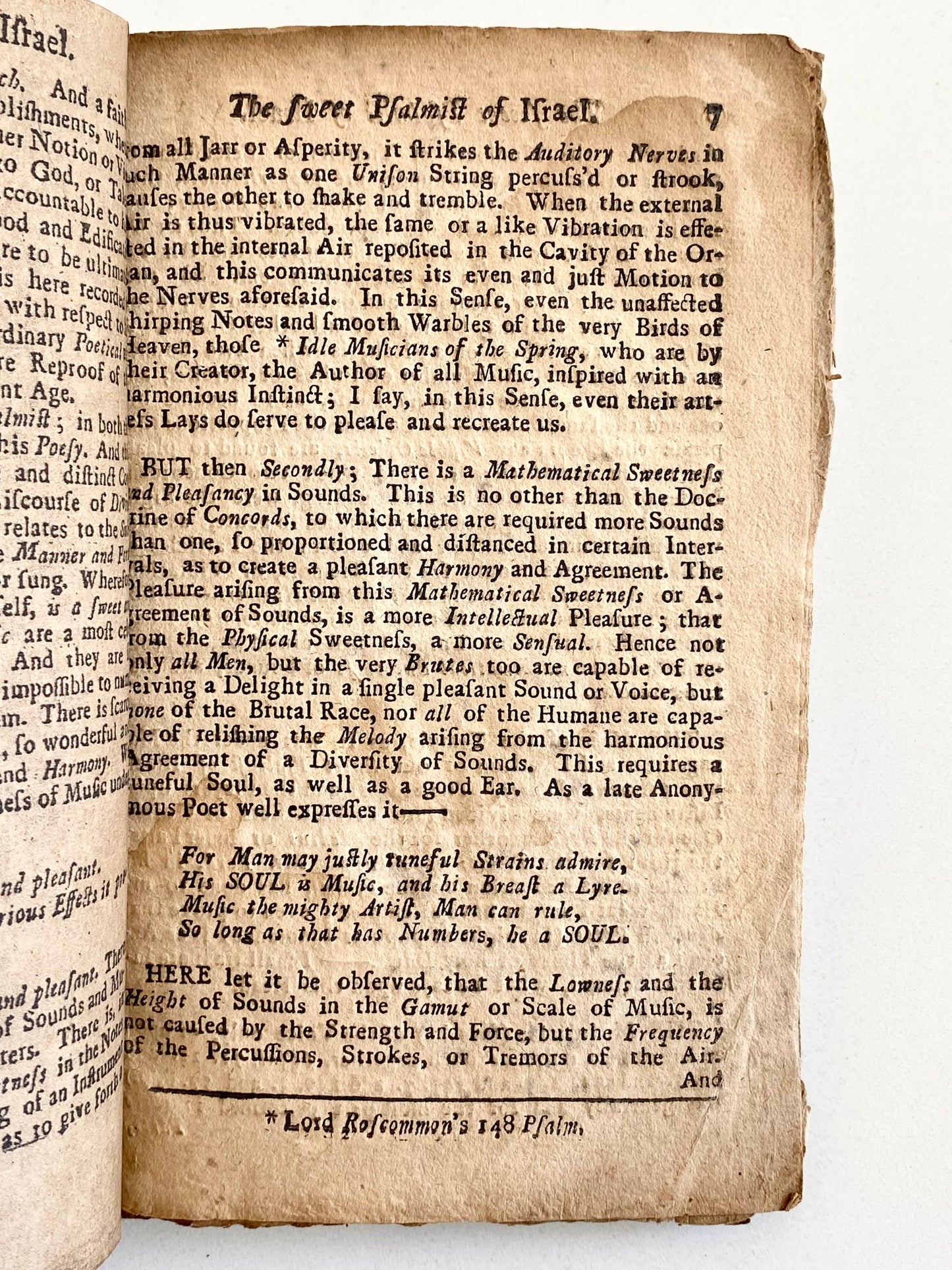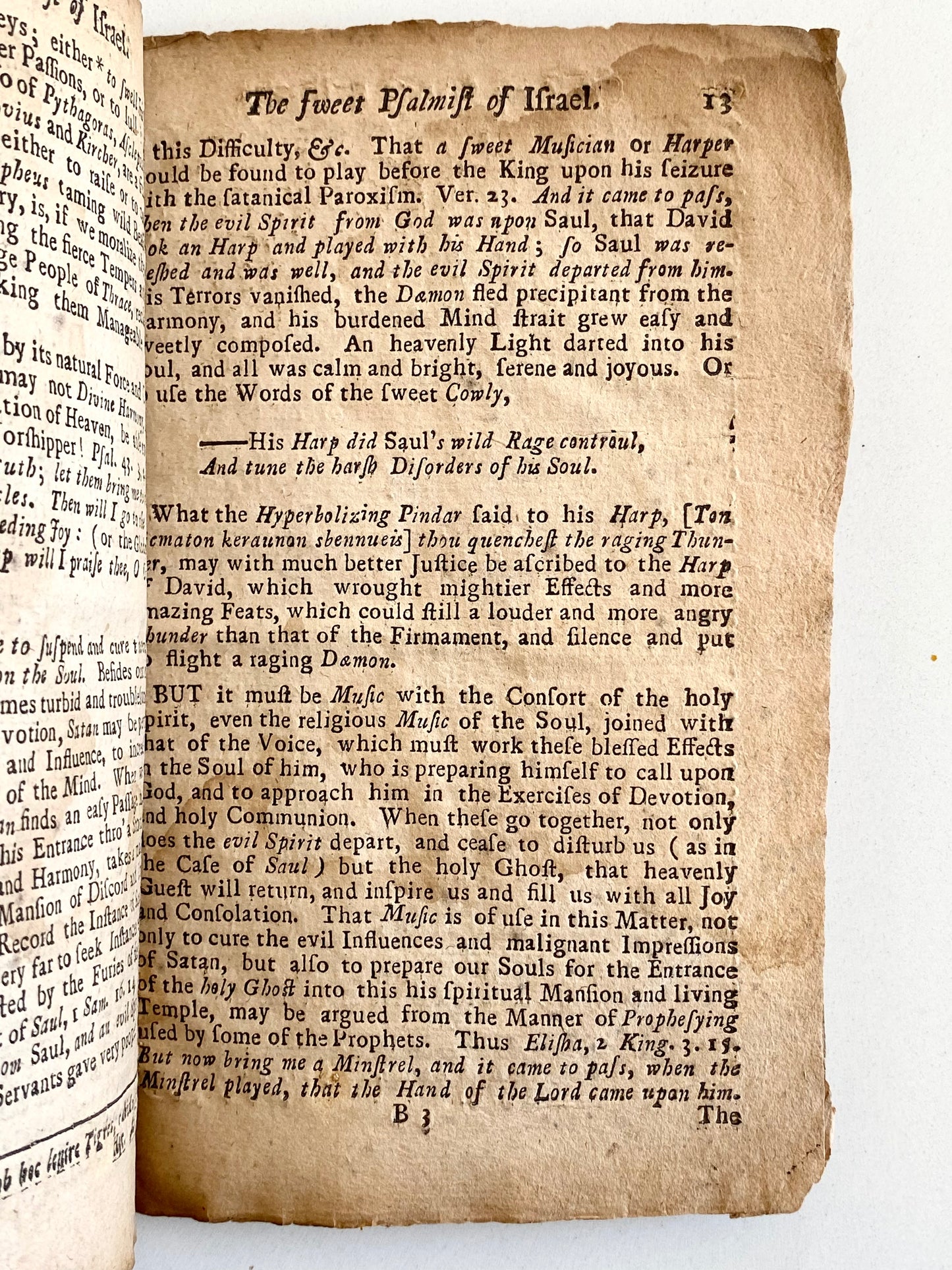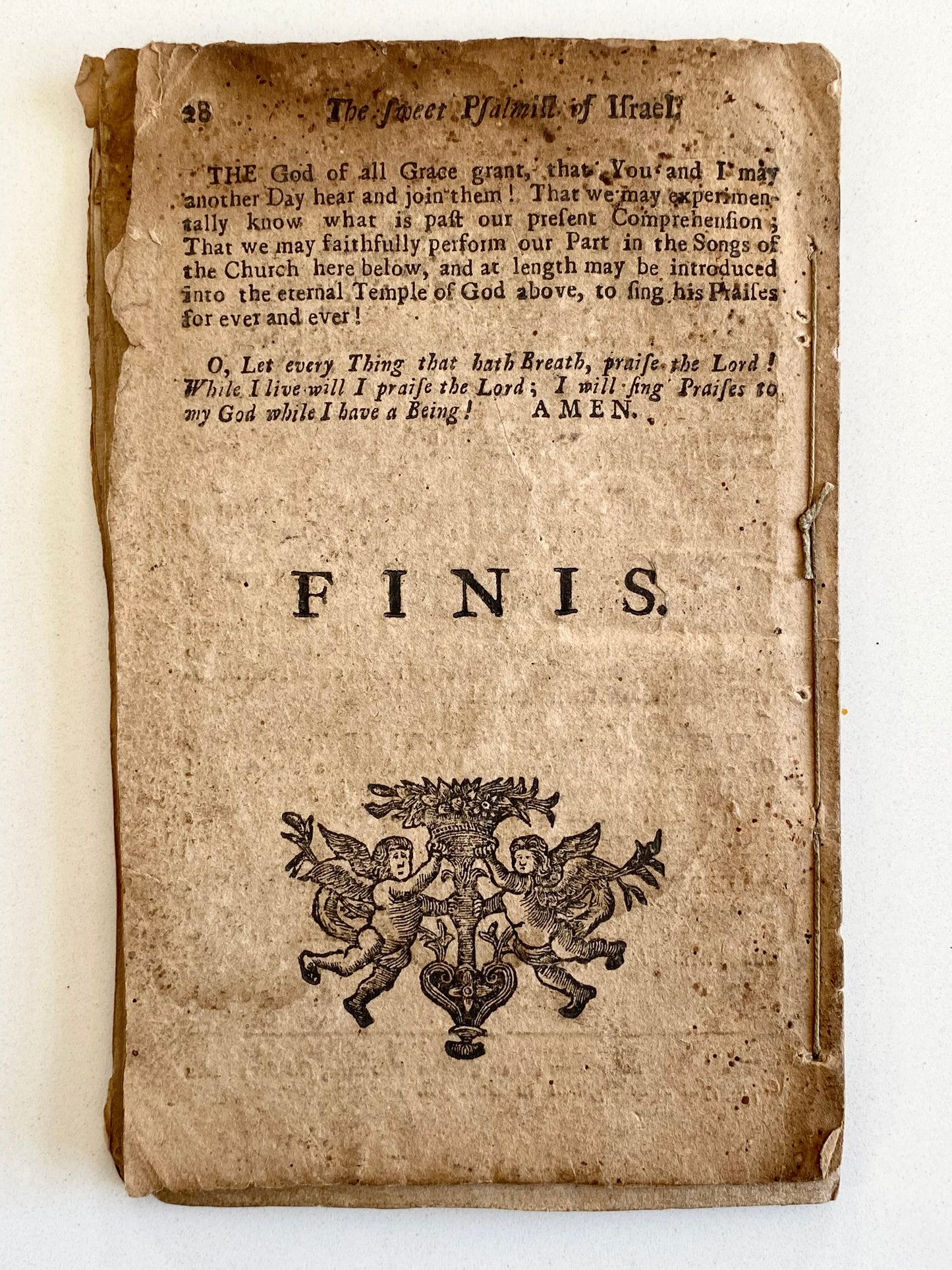Specs Fine Books
1722 BENJAMIN FRANKLIN Interest. Very Rare on Psalmody and Worship Controversy. Bay Psalm Book, &c.
1722 BENJAMIN FRANKLIN Interest. Very Rare on Psalmody and Worship Controversy. Bay Psalm Book, &c.
Couldn't load pickup availability
A wonderfully preserved scarce imprint and a distinctively American artifact.
Printed officially by James Franklin, Benjamin Franklin's older brother, Benjamin not only would have had a hand in its production, but may have actually been its primary printer. How so? In 1719, James Franklin was replaced by Samuel Kneeland as the printer of the Boston Gazette. In response, James and Benjamin started what was perhaps the first truly independent press in America, The New England Courant, in 1721. It was a press not beholden to the pressures of politician or pulpit. . . and it became the bane of many . . . often compared to the "hellfire club," long rumored to exist in England.
This had two results, both of which add interest to the present document:
First, The New-England Courant freely criticized public policy, including perceived governmental ineptitude, government overreach, misdoings of the clergy and churches, and dissenting opinions. One of these, historians are undecided about which, landed James in jail in 1722. Many have assumed it was his anti-vaccination efforts against Cotton Mather in the same year. James was an anti-vaxxer. Cotton was in favor. Public sentiment was divided and James used the pages of his paper to make anti-vaccination the popular sentiment. It, or some other infraction, cost him his freedom for June and July of 1722.
We know Benjamin was working the presses in 1721 and 1722, but during this period, he was actually the printer, running the operation. It was also during this period that Benjamin began publishing his social criticisms in The Courant under a pseudonym, Silence Dogwood. Benjamin would not appear as a printer officially until one year later. But this may be among his first true imprints.
This leads us to the second point of printerly interest. We mentioned that The Courant had become the bane. It had. And one of those who found it especially noxious was one Rev. Thomas Walter, prominent minster of Boston and Cotton Mather's nephew. He published a particularly scathing rebuke of The New England Courant and the Franklins called The Anti-Courant. James, always the publicist, went ahead and published it in full in the pages of the "offending" paper.
And yet, here we have James Franklin publishing the present work by Thomas Walter the very same year. I'll wager those meetings were "interesting."
Walter himself, as already mentioned, was the nephew of Cotton Mather and part of a group of young ministers aiming to reform the worship of New England . . . always a dangerous venture. The Bay Psalm Book itself was not the point of contention, but rather the mode of singing. To this point, most of New England just sort of went freestyle on the Sabbath. There were no noted hymnals, no prescribed tune written down to follow. As a result, we read many of the 18th century divines opining in their private diaries about the horrifying ear-stabbings they endured each Sabbath.
Walter and others prescribed that tunes be formalized and notes written out for the congregation to follow. This led the publication of his landmark The Grounds of Rules of Musick Explained: Or, an Introduction to the Art of Singing, published in 1721, also by James Franklin. It carried with it the recommendations of Increase Mather, Cotton Mather, Joseph Sewall, Thomas Prince, Benjamin Colman, and more. The second edition added the names of John Hancock, John Cotton, etc. Unsurprisingly, it started a pamphlet war, splitting churches and occupying the presses until 1725. The epicenter of this battle was the audience of our present address, The Society for Promoting Regular & Good Singing.
A fascinating artifact.
Walter, Thomas. The Sweet Psalmist of Israel. A Sermon Preach'd at the Lecture held in Boston, by the Society for Promoting Regular & Good Singing, And for Reforming the Depravations and Debasements Our Psalmody Labours Under, In Order to Introduce the Proper and True Old Way of Singing. Now Published at the Desire of Several Ministers that heard it, and at the Request of the Society aforesaid. Boston. Printed by J. Franklin, for T. Fleet, in Savage's Court in Cornhill. 1722. 28pp.
Very attractive and scarce. Trumbull calls this "one of the scarcest tracts from James Franklin's press." Stitched and repaired by Green Dragon Bindery. The half-title present is original and seemingly exceptionally rare. Leaves A7 (pp.5/6); B5 (pp.17/18); B8 (pp.23/24) are present in finely executed facsimile.
An exceptionally scarce imprint on the market, none being offered at auction since 1989.
Share
























